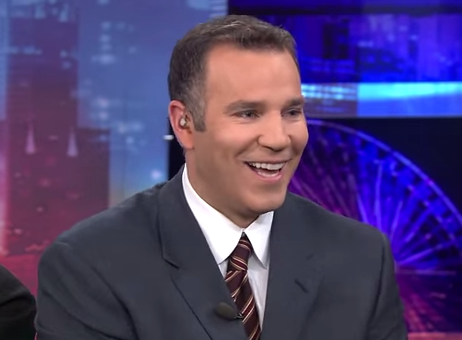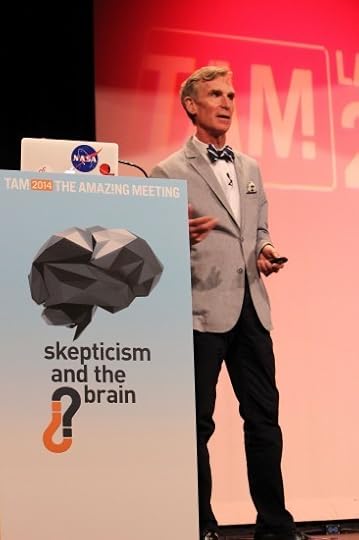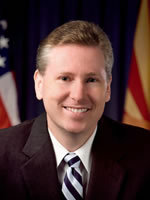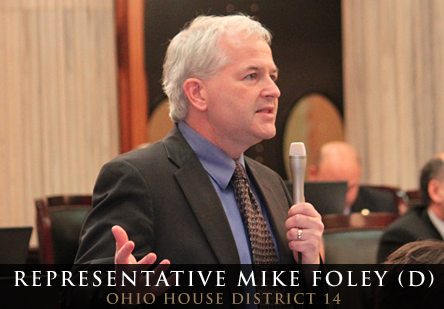Hemant Mehta's Blog, page 1974
July 18, 2014
News Anchor Offers His Take on Psychic Reading: “Awful! Not Even Close!”
I don’t know why they invite psychics on news programs, but at least WGN’s Larry Potash had the guts to call one out on her bullshit, not once, but twice!
Here’s the backstory: In 2010, psychic Char Margolis appeared on the WGN Morning News to promote her book Discover Your Inner Wisdom (the foreword’s written by John Edward of Crossing Over fame, so you *know* it’s quality material…). Potash knew she was faking it and had no problem saying as much during her reading:
Larry Potash laughs at the psychic’s failure
It was hilarious to finally see a con artist get told she was “failing miserably” on air.
At the end of that interview, Margolis said she would do a reading for Potash off-the-air (since she only “read” his co-host during the segment) and he could judge for himself how strong her abilities were.
This week, while promoting an interview with famed skeptic James Randi, Potash brought up that interaction from years ago. He said that Margolis did indeed give him a personal reading. And how did that go?:
Awful! Not even close! I mean, if you’re going to sell yourself as a psychic, at least be good at it! I mean, it’s an old parlor trick.
So The Amazing Randi will be here. He’ll talk about all the different ways some of these televangelists and some of these alleged psychics do their trickery…
I appreciate that he lumped televangelists in there 
Anyway, ask yourself why that segment’s worth posting about. And then weep at the fact that we rarely see news anchors call out obvious bullshit like that. It’s irrelevant that she was a guest on his show. When the guest is wrong, it’s the interviewer’s job to point that out. Good for Potash for not holding back.
(via The Morning Heresy)
10 Memorable Moments When Religion Was Criticized on TV. The First Clip Shocked Me
Sorry for the clickbait-y title, but it’s true!
Of all the scripted TV shows to feature criticism of religion, the first one never even crossed my mind. The rest are mostly predictable, but a few were new to me, and I watched the whole video straight through. Lots of great material here:
(via GenerationXeroFilms)
July 17, 2014
A Kickstarter for a Webcomic About Science and Pseudoscience
As is the way of things these days, a talented individual has turned to Kickstarter to fund his project.
I had the pleasure of meeting Kyle Sanders at TAM 2013, where he told me about Carbon Dating, a webcomic that he’d been working on for about six months at the time. It’s all about science, pseudoscience, and geeky relationships — and it’s delightful.
This year, when we met again at TAM 2014, he was thrilled to tell me all about his newest pet project. While we were in Las Vegas, he launched a Kickstarter campaign with the aim of raising $3,000 so he can release his comic (which is currently out Tuesdays and Fridays) every day. In just three days, he met his goal, so he’s established a couple of stretch goals. At $4,500 he’ll launch a podcast, and at $6,000 the comic will be in full color.
I wholeheartedly encourage you to head over to his Kickstarter page and pitch in a few bucks, or just check out Carbon-Comic.com and enjoy what he has up already. Kyle is an extremely talented guy, and he even drew an adorable comic of Mikey and I as an engagement present that I shall self indulgently show off to you now:
It’s currently framed in our apartment and I’m obsessed with it.
Support Kyle! He’s getting a positive message out in a fun, clever way!
A (Brief) Recap of the Rest of The Amazing Meeting 2014
After Thursday, my weekend was mostly spent running around as usual and getting some awesome podcasts recorded that I think everyone will really enjoy! But if you’ve never attended or heard of The Amazing Meeting, here’s a (very brief) recap of how the rest of the weekend went for me.
The theme for TAM this year was “Skepticism and the Brain,” which is an extremely interesting topic but one that also made my job a little tricky. The talks I heard were fun… but hard to easily recap here.
So I’ll just skip right to Saturday.
Saturday got a little nutty on me due to some personal developments in my life. My trusty sidekick/photographer/gentleman friend Michael Greiff became my trusty sidekick/photographer/fiance, so I spent most of the afternoon crying and making phone calls and hugging strangers … you know. The usual TAM stuff.
My sincerest thanks to everyone at #TAM2014 for helping @MikeyGreiff and I celebrate our engagement! pic.twitter.com/u0Sfolymwq
— Jessica Bluemke (@blueburie) July 15, 2014
Then, at night, we heard from Bill Nye! Much to my disappointment, I wasn’t able to secure an interview with The Science Guy himself (apparently the Friendly Atheist Podcast doesn’t have the big-name draw one would expect after five episodes), but I have to say, his talk more than made up for it.
Holy cow, that guy is a compelling speaker. He chatted at length about his debate with Ken Ham and went into a few of his primary frustrations. Specifically, he talked about how there are stars we can see that are millions of light-years away, but we can see them. Which, by definition, means millions of years have passed, allowing the light to travel the distance to our eyeballs. Nye noted how he felt at this point that he was just talking way over Ham’s head and knew he was not getting though to him that night.
He also pointed to a few ideas he had that would — dare he say it — CHANGE THE WORLD!
I’m hoping his talk gets put up online, because it was just remarkable.
…
Despite not being able to live blog every talk for you guys, I wanted to offer a couple of other reflections on the weekend:
Last year was my first TAM and I’ve been looking forward to coming back ever since. It did not disappoint. I’ve made some incredible new friends, had amazing conversations, and the feeling of community is just palpable. As I expressed during my conversation with a few of the women from Skeptic Ink (coming soon to a podcast near you!), I find myself with this amazing feeling while I’m there because it seems like everyone is a million times smarter than I am. But instead of feeling dumb or invalid in any way, I feel like I’m intellectually lifted by those around me.
I count myself extremely lucky to have attended the last two TAMs and I look forward to going in the years to come. I know it’s not cheap, but I would recommend attending if you can. It has become my happy place.
The IRS Says It Will Finally Enforce the Rules Barring Pastors from Endorsing Candidates from the Pulpit
Back in November of 2012, the Freedom From Religion Foundation sued the IRS because of the government agency’s “failure to enforce electioneering restrictions against churches and religious organizations.” Basically, churches were endorsing political candidates from the pulpit and the IRS wasn’t doing anything to stop it. Part of the problem was that there was a vacancy in the position which normally handled those issues.
Why is the IRS giving preferential treatment to churches?
The IRS tried to quash this lawsuit before it could proceed but, last August, U.S. District Judge Lynn Adelman dismissed the IRS’ motion, allowing FFRF to move forward with their lawsuit.
Today, FFRF announced that it had reached a settlement with the IRS.
“This is a victory, and we’re pleased with this development in which the IRS has proved to our satisfaction that it now has in place a protocol to enforce its own anti-electioneering provisions,” said FFRF Co-President Annie Laurie Gaylor.
“Of course, we have the complication of a moratorium currently in place on any IRS investigations of any tax-exempt entities, church or otherwise, due to the congressional probe of the IRS. FFRF could refile the suit if anti-electioneering provisions are not enforced in the future against rogue political churches.”
…
The IRS has now resolved the signature authority issue necessary to initiate church examinations. The IRS also has adopted procedures for reviewing, evaluating and determining whether to initiate church investigations. While the IRS retains “prosecutorial” discretion with regard to any individual case, the IRS no longer has a blanket policy or practice of non-enforcement of political activity restrictions as to churches.
We don’t know the terms of the settlement, but the point is that the IRS now says it will enforce its own rules.
It couldn’t have come at a better time. The Christian Right group Liberty Counsel announced this week that it would be distributing 150,000 DVDs to pastors across the country encouraging them to “address biblical and moral issues” from the pulpit — which is evangelical code for “tell your congregations which way to vote” since the only thing pastors ever do is address biblical and moral issues from the pulpit.
(Liberty Counsel’s Mat Staver added that if they didn’t send the DVDs, then Hitler would win: “We saw how the spiral of silence had devastating results in Nazi Germany. We need to stop the spiral of silence in America.”)
(Portions of this article were posted earlier)
AZ Gubernatorial Candidate Mad Because College Grads Are *Less* Likely to Want Teachers to Lead Classroom Prayers
Andrew Thomas (below), a Republican candidate to become the next governor of Arizona, said something during last night’s debate that I think all of you are going to appreciate… for reasons that would infuriate him.
Thomas, who was disbarred by the state’s Supreme Court in 2012 for “disgracefully misus[ing] the law,” was supposed to be talking about how to keep college affordable.
Instead, he began rambling about how liberals “brainwash” students:
As evidence, Thomas, who is a Harvard Law School graduate, cited studies that found as respondents earned higher degrees of education, they were less likely to want public school teachers leading students in prayer.
“Higher education has become essentially a scam in this country,” he said.
Umm… maybe they don’t want teachers leading classroom prayers because the more education they have, the more they realize that prayer ain’t gonna fix anything.
Also, you know, it’s illegal. (You’d think a Harvard Law grad would’ve figured that one out by now…)
I know it’s a constant refrain on this site, but you can’t spell crazy without R-AZ. Thomas fits the bill.
***Update***: You can read more of Thomas’ statements about education here, from a speech given this past January.
(Image via Wikipedia. Thanks to Brian for the link)
Chicago Non-Theistic Communities Answer the Question of What to Do After Members Stop Believing in God
Chicago is home to a variety of different non-theistic communities and public radio station WBEZ’s Lynette Kalsnes put together a wonderful segment yesterday about who we are and why we gather.
The piece focused on Kol Hadash Humanistic Congregation, the Sunday Assembly, and Foundation Beyond Belief, whose conference is this weekend in the city. (It quotes me in a couple of places, too.)
Across Chicago, atheists, agnostics and humanists are finding each other with rituals that look a lot like church or temple — but without a God.
“The need for community is a human need, it’s not a religious need, it’s not a secular need, it’s a human need,” said Rabbi Adam Chalom, who leads Kol Hadash. “We need inspiration, we need beauty, we need community, fellowship, support through difficult moments, the chance to celebrate your family culture if that’s the direction you’re going.”
Not all atheists want to be part of such a community, but I strongly believe a lot more of us would join them if we only knew they existed. They offer all the benefits of church with none of the supernatural bullshit. More importantly, they make you feel welcome. In many parts of the country, atheists would love that sort of reception. Chicago is a good example of a place where atheists don’t take those opportunities for granted.
***Update***: WBEZ aired another, longer segment about atheists this morning:
Hobby Lobby Owners Will Open a Bible Museum in Washington, D.C. in 2017
You know what Washington, D.C. needs? More religion. It’s not enough that the Supreme Court seems to be an extension of the Catholic Church lately or that Congress is overrun with Christians who want to legislate their beliefs.
Now, the Hobby Lobby-owning Green family is set to open up a Bible Museum in the city in 2017:
A digital rendering of the Bible Museum
… the yet-to-be-named museum would welcome people of all faiths and include rare Torahs as well as historic Bibles.
Starting the Bible museum in the nation’s capital was no accident. After surveying cities, including Dallas and New York, for more than a year, the Museum of the Bible, the Green family’s nonprofit organization that is overseeing the project, chose Washington for its tourists, robust museum culture and national profile.
As much as Steve Green claims this would be museum documenting history, his activist career suggests he’s far more interested in evangelizing than educating. Need proof? Look no further than the public school Bible-as-literature curriculum he’s trying to push through in Oklahoma, which reeks of proselytizing.
Need more proof? Cary Summers, the Museum of the Bible’s chief operating officer, is also a consultant for the Creation Museum’s Noah’s Ark theme park. Because that’s a group that’s all about history and not mythology…
Green might actually do us all a service if he properly documented how the Bible was put together, showing how it was edited and rewritten over the years and how books were selectively removed from it. But you get the feeling he’s not interested in *that* history.
Can you imagine, though, walking inside and seeing a giant mural showcasing all the contradictions in the Bible?
It seems like an unnecessary museum, anyway.
D.C. is already home to buildings that promote works of fiction. They’re called libraries.
(Portions of this article were posted earlier)
Atheists Are Just 2% of the Population, but 59% of Americans Claim to Know One
Yesterday, the Pew Research Center released data concerning the relative popularity of various religious groups. There’s still a lot to learn from the data, so today they released an article answering the question: “How many people of different faiths do you know?”
This question is incredibly important for atheists, because we know the stigma against us evaporates as people get to know us better. And it turns out that, despite being only 2% of the population, 59% of Americans know someone who doesn’t believe in a god:
That puts us right in line with Jewish people when it comes to familiarity. It’s also a testament to the fact that atheists don’t congregate in certain parts of the country. If you live in Utah, you undoubtedly know a Mormon; that may not be the case if you live in, say, Alabama. Similarly, Muslims and Hindus tends to live predominantly in/around certain large cities, and beyond those, you may not meet very many at all.
But atheists live all over the place. You can’t escape us. (*Evil laugh*)
As I said yesterday, that 59% familiarity is very likely an underestimate. So many atheists remain in the closet that the vast majority of Americans probably *do* know an atheist. They just don’t know that they know an atheist.
Here’s what surprises me, though: Who are these people who don’t know any evangelical Christians or Catholics? Are they sheltered, unaware, or living in parts of the country where religion isn’t foisted upon them?
Michael Lipka summarizes the findings (emphases his):
All together, the average American personally knows members of at least four of the eight religious groups included in the survey. In general, whites tend to know people in more groups (four) than do blacks (three). And there is a gap between people with a college degree – who know, on average, members of five different religious groups – and those with only a high school diploma or less education, who know someone in an average of three groups. There is virtually no difference, however, between Republicans and Democrats on this measure (four groups each).
…
In our panel’s answers, we noticed a pattern that holds across all religious groups: Americans who know a member of a group tend to rate that group more positively. For example, among those who know an atheist, the average rating of atheists is 50; among those who don’t know an atheist, it’s 29. And among those who know a Buddhist, the average rating of Buddhists is 70. The comparable rating by those who don’t know a Buddhist is 48.
A New Bill in Ohio Will Allow Atheists to Solemnize Marriages
With an Appeals Court overturning Indiana’s ban on Secular Celebrants performing wedding ceremonies this week, the Center For Inquiry is now setting its sights on Ohio, where a similar ban is still in effect.
There’s no lawsuit this time, though. They’re doing this one legislatively with the help of State Rep. Mike Foley (D):
Ohio House Bill 591 would reword the current law governing marriage officiants to allow anyone, regardless of religious affiliation, to register with the Secretary of State and receive the authorization to solemnize marriages. If the bill becomes law, secular humanists, atheists, and other nonreligious Americans will no longer have to settle for marriage by government employee, or through some quasi-religious mail-order certification, but will instead be able to celebrate this wonderful milestone event in a way that embraces their nontheistic worldview.
…
… “I introduced House Bill 591 because we have couples in Ohio who wish to celebrate and solemnize their marriages in a secular manner,” said Rep. Foley. “It is time we allow couples greater freedom in choosing who performs their marriage, especially those couples in our state who do not have ties to a certain religious organizations.”
The bill is co-sponsored by Rep. Robert F. Hagan.
It looks like HB 591 would completely overhaul current law, but it would really just make it simpler by opening up the ability to solemnize marriages to anyone who registers to do so with the secretary of state.
This is a no-brainer. There’s just no good reason to oppose the bill.
Which means someone will inevitably do so, claiming that allowing atheists to officiate a wedding would somehow ruin the experience for other people or deprive ministers of some holy power.
A lot of credit goes to the Northeast Ohio branch of the Center for Inquiry, which lobbied the State Assembly to make this happen.
Let’s hope there’s no holdup. Pass this bill quickly, Ohio. And if you live in the state, encourage your representatives to support it.
***Note***: To clear up some confusion, it was always possible to have a Humanist Celebrant officiate a wedding in a non-religious way. That’s because Humanist Celebrants are certified by the Humanist Society, which is actually a religious organization. This bill would allow atheists who aren’t “ordained” by that group to also solemnize marriages.
Hemant Mehta's Blog
- Hemant Mehta's profile
- 39 followers

















